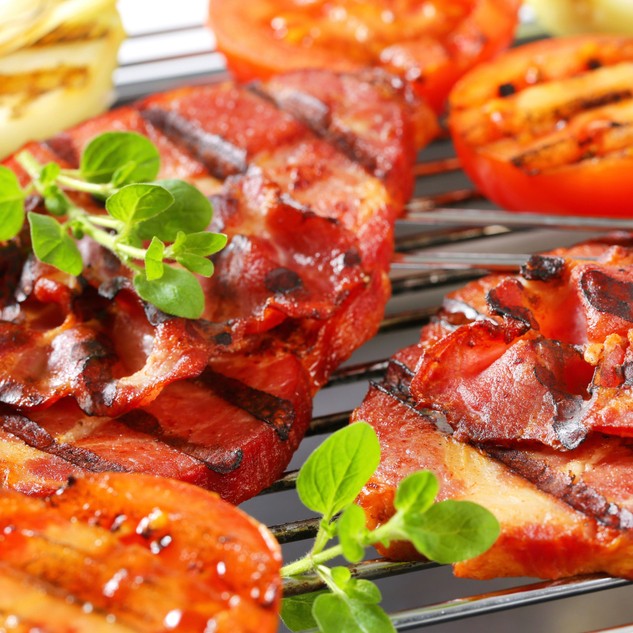
Keeping the Healthy in Summer Eating
For many people, summertime means barbeque time. But did you know that grilling meat at high temperatures can actually produce carcinogens that can be detrimental to your health? The National Cancer Institute along with many various studies are now reporting that there is an increase of toxins associated with grilling meat. When cooked for an extended period of time at temperatures above 300 degrees Fahrenheit, the chemicals heterocyclic amines (HCAs) and polycyclic aromatic hydrocarbons (PAHs), are produced.
About HCAs and PAHs – Toxins Associated With Grilling Meat
(HCAs) and polycyclic aromatic hydrocarbons (PAHs) are chemicals formed when muscle meat is cooked at high-temperatures, such as pan frying or grilling over an open flame. Heterocyclic amines (HCAs) are formed when amino acids (the building blocks of proteins), sugars, and creatine (a substance found in muscle) react at high temperatures.
PAHs are formed when fat and juices from meat grilled directly over an open fire drip onto the fire, causing flames. These flames contain PAHs that then adhere to the surface of the meat. PAHs can also be formed during other food preparation processes, such as smoking of meats.
In laboratory experiments, HCAs and PAHs have been found to be mutagenic—that is, they cause changes in DNA that may alter cell growth processes and health. HCAs are not found in significant amounts in foods other than meat cooked at high temperatures. PAHs can be found in other charred foods, as well as in cigarette smoke and car exhaust fumes.- Paraphrased from the NIH Website
There are currently no set guidelines as to what amount of HCAs and PAHs are safe to consume. It seems wise though, to limit cooking food in ways that promote toxins and may damage healthy cells.*
Ways to Protect Your Health
Even if you vow never to eat barbequed meat again, PAHs are found in things most of us come into contact with every day, such as car exhaust. Here are a few simple things you can do to keep your body strong and your health defenses up:
- Consume Plenty of Antioxidants. Supreme sources of antioxidants include brightly colored berries, dark leafy greens, and green tea
- Make the majority of your diet plant-based. Plants provide antioxidants, vitamins and minerals, and fiber necessary to reduce toxins and stay healthy.
- Use Caution While Grilling. When you do barbeque, turn meat frequently, cook at a low temperature, and do not overcook or char the meat. Bake or broil meat when possible to reduce HCAs.
- Marinate your meat with garlic and onion prior to cooking. Some research indicates that this may help to reduce HCAs 5.
Supplements to Support Wellness all Summer Long
Exposure to toxins is impossible to avoid completely in this day and age. Being careful about limiting your exposure, however, can certainly make a difference in your long term health. Strive to lead a conscious and well-balanced lifestyle this summer, and feel great all season long!
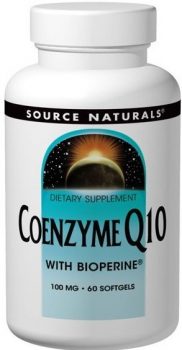 Coenzyme Q10 (CoQ10) supplementation during the summer months will help to provide the optimal antioxidant support you need to stay healthy behind the grill.
Coenzyme Q10 (CoQ10) supplementation during the summer months will help to provide the optimal antioxidant support you need to stay healthy behind the grill.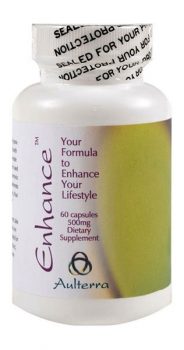 Aulterra Enhance is a natural mineral blend that helps to neutralize toxic substances encountered on a daily basis. It helps human DNA to repair itself during what is known as the quantum oscillation effect.*
Aulterra Enhance is a natural mineral blend that helps to neutralize toxic substances encountered on a daily basis. It helps human DNA to repair itself during what is known as the quantum oscillation effect.*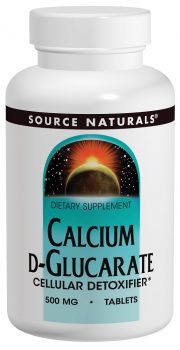 Calcium D-Glucarate, also found in fruits and vegetables, has been shown to support the process of binding toxins, carcinogens, and used hormones with water-soluble substances in the liver for elimination.
Calcium D-Glucarate, also found in fruits and vegetables, has been shown to support the process of binding toxins, carcinogens, and used hormones with water-soluble substances in the liver for elimination.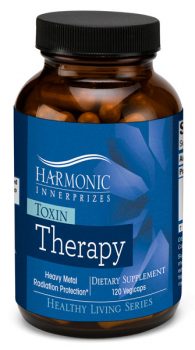 Toxin Therapy contains chlorella regularis, one of the most powerful heavy chelation agents known to man. It contains several other plant and herb-based products known to help the body eliminate excess toxins.
Toxin Therapy contains chlorella regularis, one of the most powerful heavy chelation agents known to man. It contains several other plant and herb-based products known to help the body eliminate excess toxins.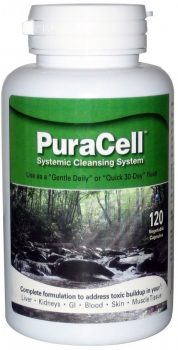 PuraCell covers multiple facets of cleansing and detoxifying.* Few other products can deliver such thorough coverage on such a vast array of toxicity concerns, especially in such a gentle manner.
PuraCell covers multiple facets of cleansing and detoxifying.* Few other products can deliver such thorough coverage on such a vast array of toxicity concerns, especially in such a gentle manner.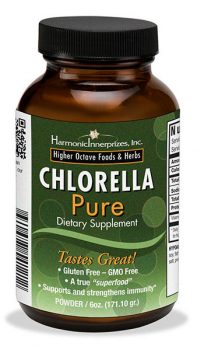 ChlorellaPure contains Chlorella regularis, a softer cell wall that can be broken by digestive juices far into the intestine, providing both detoxification and antioxidant benefits from inside and outside of the cell.
ChlorellaPure contains Chlorella regularis, a softer cell wall that can be broken by digestive juices far into the intestine, providing both detoxification and antioxidant benefits from inside and outside of the cell.References and Related Medical Articles
- Cross AJ, Sinha R. Meat-related mutagens/carcinogens in the etiology of colorectal cancer. Environmental and Molecular Mutagenesis 2004; 44(1):44–55.
- Navarro A, Muñoz SE, Lantieri MJ, del Pilar Diaz M, Cristaldo PE, de Fabro SP, Eynard AR. Meat cooking habits and risk of colorectal cancer in Córdoba, Argentina. Nutrition. 2004 Oct;20(10):873-7.
- Sanoj Punnen, Jill Hardin, John Witte. Meat and related meat mutagen consumption and risk of advanced prostate cancer. American Urological Association 2011 annual meeting.
- Zheng W, Gustafson DR, Sinha R, Cerhan JR, Moore D, Hong CP, Anderson KE, Kushi LH, Sellers TA, Folsom AR. Well-done meat intake and the risk of breast cancer. J Natl Cancer Inst. 1998 Nov 18;90(22):1724-9.
- Gibis M. Effect of oil marinades with garlic, onion, and lemon juice on the formation of heterocyclic aromatic amines in fried beef patties. J Agric Food Chem. 2007;55(25):10240-10247.




